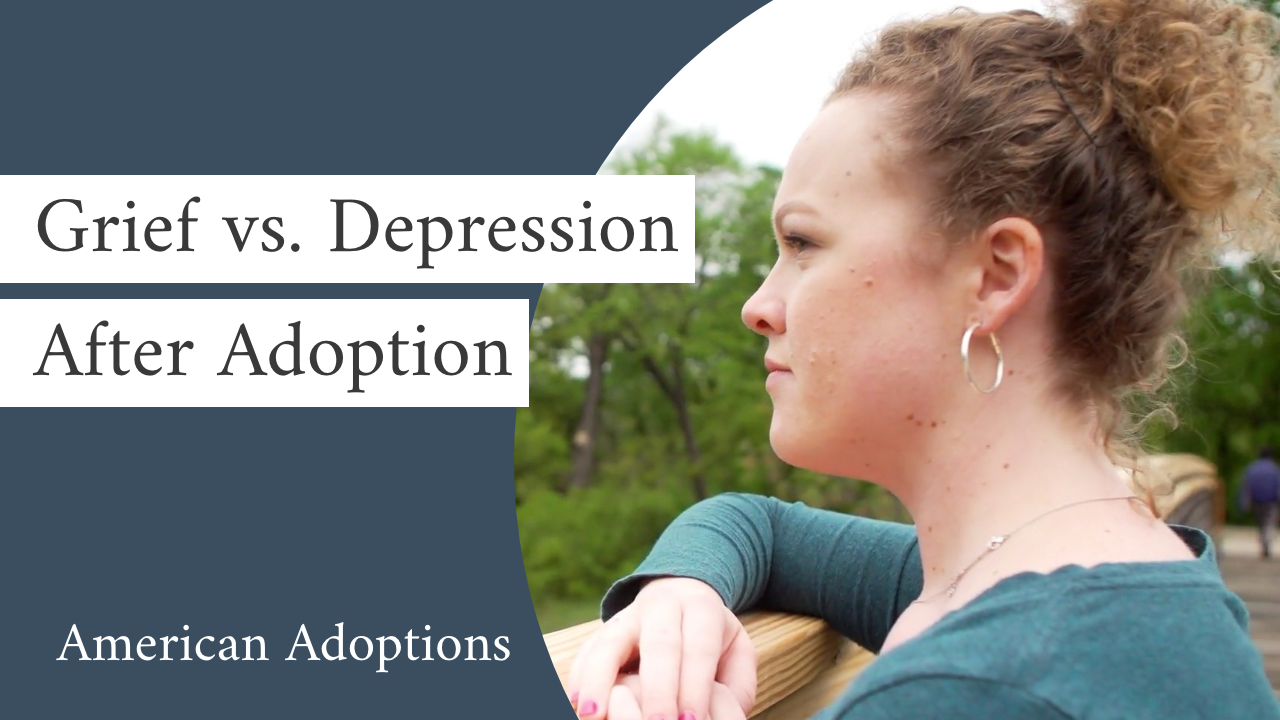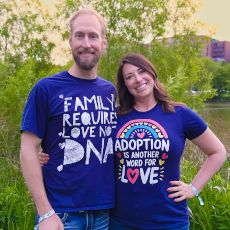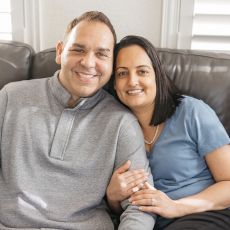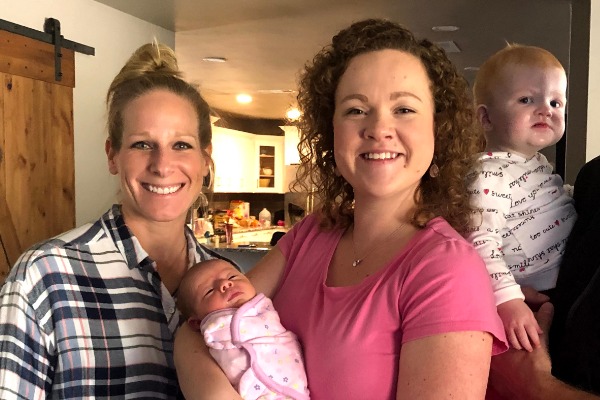Grief vs. Depression: Understanding the Difference [When to Seek Help]
It’s important to be able to tell the difference between grief and depression after your child has gone home with their adoptive family. Grief is expected and will eventually subside, but depression is something that needs serious attention. If you need immediate support, please call 1-800-ADOPTION now – someone will be there to listen.

Experiencing challenging emotions when placing your baby for adoption is perfectly normal because it is a difficult decision to make, even if it’s what’s best for your baby. Adoption is a sacrifice that sets your child up to receive all of the opportunities that he or she deserves, but it’s going to come at an emotional cost to you.
In fact, choosing adoption for your child may come with a grief and loss process that, initially, can be very intense. This is okay, and it’s totally normal.
If you’re considering adoption but struggling with your feelings, American Adoptions is here to help. You can call our 24/7 hotline to get support and information about the adoption process as you need it.
Continue reading to learn more about the telltale signs of both grief and depression.
The Seven Stages of Grief
If you place your child for adoption, you may experience some semblance of the following stages of grief. There is no set timeline for any step, and they may occur in any order.
-
Denial: If at any point during your pregnancy or placement, you thought, “I can’t believe this is happening to me,” that’s denial kicking in. It can happen at any point, and it’s typically one of the first stages of grief. You feel that your situation isn’t fair and that you didn’t deserve this.
-
Anger: You may be angry at the father of your child, at yourself, or at the situation in general. It’s completely normal and can be healthy as long as you don’t express this feeling in unhealthy ways.
-
Shock: This frequently happens when learning of your pregnancy in the first place. Determining what to do about an unplanned pregnancy is a life-changing choice, and it’s normal to feel shocked and frozen when facing it in the beginning.
-
Depression: The thought of someone else raising your child may cause situational depression. However, this frequently begins to go away once you find the right adoptive family for your child. It’s normal to experience temporary depression during the adoption process, but if it continues and becomes as extreme as the condition described later in this article, you may need to seek help.
-
Fear: The thought of your child living with someone else may bring on feelings of fear for him or her. Once you become comfortable with the adoptive family you’ve chosen, these feelings should begin to subside.
-
Guilt: For a while, you may feel guilty for choosing adoption for your baby instead of parenting. This is completely normal, but it’s important to remind yourself — even when feeling this way — that you made the best choice for your child.
-
Acceptance: Eventually, you will come to accept that adoption was the best decision and that your child is living a happy, healthy life. It may take time, but you will eventually become comfortable with your choice and even grateful for the strength it took for you to make it.
“It was heartbreaking, but there was never a time that I didn’t feel like it felt right,” Randi said about completing the adoption following delivery. “It was hard because you still have all these hormones running through you and all these motherly instincts. And it’s like your brain is telling you one thing, and your body is telling you another thing. I think that was the hardest part.”
It’s important to remember that grief is a natural response to loss and will eventually begin to fade. With grief, there is always a light at the end of the tunnel. Your adoption specialist will always be available to you as a shoulder to lean on and help you cope with the emotions you’re experiencing.
Helpful Information
Symptoms of Depression
If you experience any of the following symptoms every day for an extended period of time, it may be time to reach out for professional help:
-
Loss of appetite and/or significant weight loss
-
Irregular sleep patterns that include sleeping too much or too little
-
Fatigue and loss of energy
-
Loss of interest in doing activities that normally appeal to you
-
Depressed mood
-
Easily irritable
-
Difficulty concentrating on normal tasks
-
Any thoughts of death or suicide (If you are experiencing these thoughts, please call the suicide hotline at 1-800-273-8255 immediately.)
-
Consistent isolation of self from others
Depression can make it difficult to function even during the most routine of activities, and it’s extremely important to consult with a physician or mental health provider if you think you may be depressed.
Grief has an endpoint and will eventually get better, but depression lingers past what would be considered the normal grieving process. If you are feeling hopeless and don’t expect to ever come to an endpoint in the way you are feeling, it’s possible that you may be experiencing something beyond the normal grieving process after placing your child for adoption.
It’s so, so important to seek help if you are struggling after placing your baby for adoption. Sometimes, knowing you did the right thing isn’t quite enough to get back into an everyday routine, and that’s completely okay.
American Adoptions offers 24/7 counseling to birth mothers, both before and after placement. If you aren’t sure if what you’re feeling is normal, your American Adoptions counselor can help you to determine whether you are simply not through the grieving process yet, or whether there may be an underlying issue.
If you are experiencing feelings of grief or depression about your decision to place your child for adoption, please do not hesitate to reach out to us at 1-800-ADOPTION today.
Disclaimer
Information available through these links is the sole property of the companies and organizations listed therein. American Adoptions provides this information as a courtesy and is in no way responsible for its content or accuracy.








































